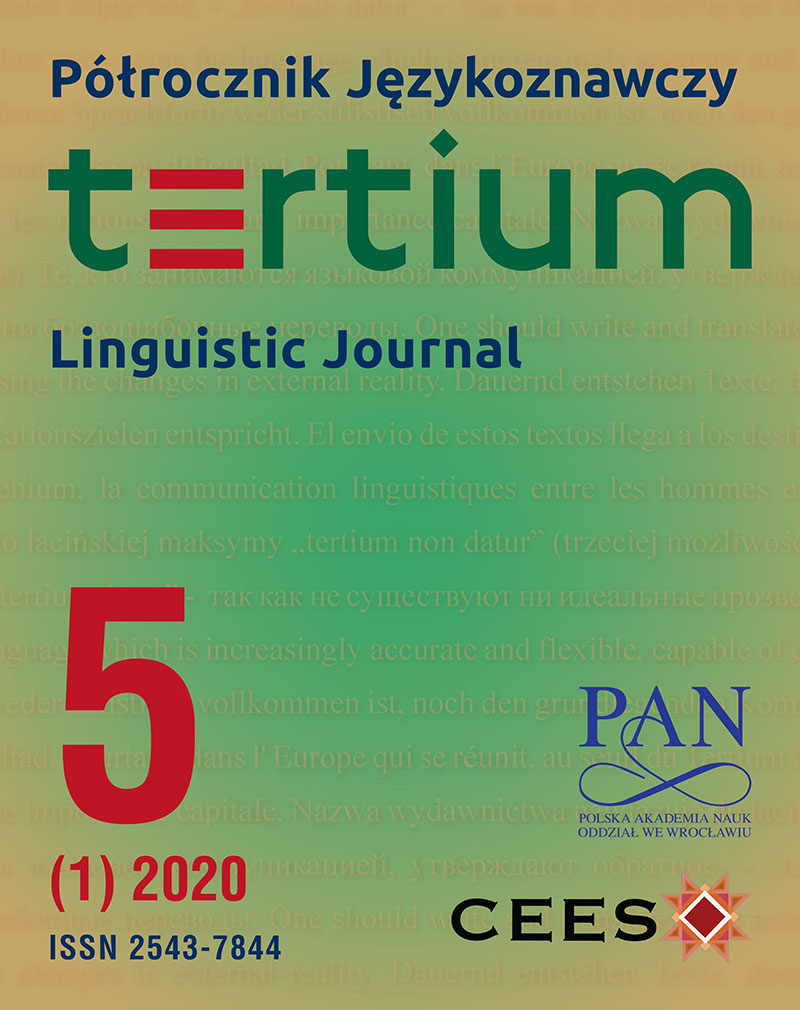Exploring the Construction of Identities in Written Humorous Narratives by L2 Learners of Greek
Exploring the Construction of Identities in Written Humorous Narratives by L2 Learners of Greek
Author(s): Spyridoula GasteratouSubject(s): Sociolinguistics, Migration Studies, Social Norms / Social Control
Published by: Krakowskie Towarzystwo Popularyzowania Wiedzy o Komunikacji Językowej Tertium
Keywords: narratives; humor; identities; L2; GTVH;
Summary/Abstract: The aim of this paper is to explore how adult learners of Greek as a second language construct their identities through humorous written narratives. Analyzing 135 written humorous narratives with Bamberg’s (1997) narrative positioning model and the knowledge resources of script opposition and target from the General Theory of Verbal Humor (Attardo 1994, 2001), we detect two main categories: (a) narratives of legitimizing identities and (b) narratives of resistance identities. Here we discuss one narrative of each category in which narrators position themselves towards aspects of the Greek sociolinguistic context. Humor emerges as a basic tool for identity construction and stance expression, as narrators either align themselves with dominant values of the L2 context or disassociate themselves from it. Celem niniejszego artykułu jest zbadanie w jaki sposób osoby dorosłe uczące się języka greckiego jako obcego (L2) definiują swoją tożsamość poprzez teksty narracyjne o charakterze humorystycznym. Używając modelu pozycjonowania narracyjnego Bamberga (1997) oraz opozycji skryptów i obiektu dowcipu będących częścią ogólnej teorii humoru słownego (General Theory of Verbal Humor) (Attardo 1994, 2001) do przeanalizowania zbioru 135 tekstów o charakterze humorystycznym, wyróżniono dwie główne kategorie: (a) narracje o tożsamości legitymizującej oraz (b) narracje o tożsamości wyrażającej opór. W niniejszym artykule omawiamy po jednej narracji z każdej kategorii, w której została wyrażona postawa narratora wobec wybranych socjolingwistycznych elementów kontekstu języka greckiego. Humor okazuje się głównym narzędziem przy konstruowaniu tożsamości i wyrazicielem postaw, a narratorzy albo akceptują dominujące wartości obecne w kontekście języka L2, albo odcinają się od nich.
Journal: Półrocznik Językoznawczy Tertium
- Issue Year: 5/2020
- Issue No: 1
- Page Range: 132-149
- Page Count: 18
- Language: English

